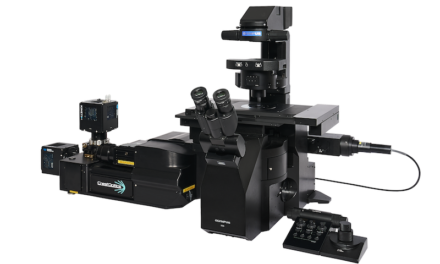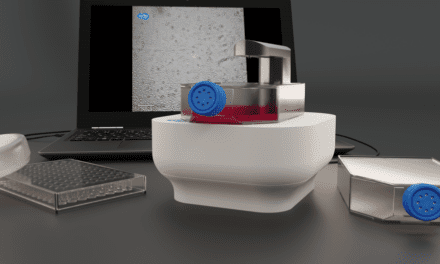Scopio Labs today announced the publication of a new study that examines the impact of implementing remote* digital microscopy for peripheral blood smear (PBS) analysis. Conducted by Tel Aviv Sourasky Medical Center (TASMC) and published in Applied Clinical Informatics, the study found that the application of Scopio’s digital morphology and analysis system significantly reduces laboratory turnaround time (TAT) for PBS review, as compared to TASMC’s previous digital imaging workflow.
Most hospital-attached clinical laboratories suffer from delayed turnaround time – a major benchmark for laboratory performance, including for peripheral blood smears. Hematology labs are facing pressure to work more efficiently, but existing digital morphology analyzers have a limited field of view and may require qualified experts to make return trips to the microscope.
Related: Scopio Labs High Throughput Hematological Analysis Platform Receives FDA Clearance
The study measured the impact of altering the weekend lab workflow using fully remote digital microscopy via Scopio’s X100 with Full-Field PBS Application, looking specifically at workflow efficiency and turnaround time. A total of 10,704 PBS samples were reviewed during two five-month periods.
“Scopio’s platform significantly reduced turnaround times and improved efficiency of the hematology lab’s morphology analysis,” says Ben-Zion Katz, PhD, lead author of the study. “By adding remote PBS review capacity over the weekends, we were able to decrease weekend turnaround times for PBS review and eliminate a huge backlog at the start of the week, all without requiring additional staff in the lab on the weekend. We saw clinical benefits, achieved net cost savings, and provided flexibility to our skilled staff.”
Key findings from the study include the following:
- Remote review of PBS slides over the weekend reduced TAT by 41.4% on the first day of the weekend and 33.1% on the second day.
- Remote review over the weekend eliminated all backlogs of samples, reducing TAT by 59.1% on the first weekday.
- Overall morphology turnaround time in the laboratory dropped by 15.8% over a five-month period, compared to previous digital morphology workflow.
- After implementing the remote weekend workflow, the lab was able to cut an entire eight-hour shift that had previously been necessary to address the backlog of samples accrued over the weekend.
Prior to this study, Scopio digital morphology and analysis platforms had already increased efficiency for Tel Aviv Sourasky Medical Center’s hematology laboratory. This study is the first to quantify an increase in terms of PBS turnaround time, staff hours, and costs.
“For TASMC, being able to achieve timely detection from different physical locations is a game-changer,” says Itai Hayut, CEO and co-founder of Scopio Labs. “Improving turnaround time better equips hematology labs to fulfill their crucial role in saving lives. We are encouraged by this study’s promising results.”
*Remote review is accessible only for authorized users via the hospital’s secure network.





